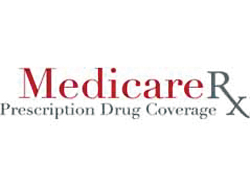We’re from the government, and we’re here to make you sick.
Monday, May 15, marked the enrollment deadline for the new Medicare Part D prescription drug “benefit.” For the tens of millions of elderly, disabled, and low-income Americans who are eligible but who haven’t enrolled in Part D, it was a critical date. The Bush administration’s much-touted 2003 bill included, among many other dreadful provisions, a stipulation that anyone without certification of a better drug plan who fails to enroll in Part D will face a 1 percent per month penalty on insurance premiums, for every month after May 15 that they have failed to enroll—for the rest of their lives. Since enrollment is now closed until the end of the year seven months from now, tens of millions of people who can least afford it, should they decide to enroll, have incurred a minimum 7 percent lifetime penalty—a so-called “senior tax.”
I’m one of those people. I didn’t enroll.
Due to kidney failure, I’ve been eligible for Medicare disability since 1993. Over those years, it’s been a constant battle to keep insurance coverage, because, well, insurance companies hate to cover sick people. Because I’m a transplant recipient (twice), and because we allow drug companies to charge whatever the market will bear for life-giving drugs, I’ll be taking several really expensive drugs the rest of my life. Overall, I take about 20 medications.
At present, I pay well more than $5,000 a year, excluding co-pays and other out-of-pocket costs, for prescription drug coverage. Without coverage, it’d cost me well over $50,000 in any given year—if I didn’t have any complications. Medicare’s Part D would actually save me a couple thousand a year, but I don’t dare risk it. Why? Because once I pick one of the 47 or so private insurance plans available through Part D in Washington, that insurer can change, at any time, the list of the drugs they’re willing to cover. If they decide not to cover one of those expensive life-giving drugs, I can’t do anything about it. I can’t change plans until year’s end. I’ll have to pay for it myself. Meaning that instead of saving a couple of thousand dollars, Part D would wind up costing me as much as $10,000 more. For one drug. I have 20 they can mess with me on.
It’s even worse for so-called “dual eligible” patients, low-income folks eligible for both Medicare and Medicaid. They were all forced off their much-better Medicaid drug coverage and randomly assigned a Part D insurance plan, regardless of their needs or the drugs they take.
And if I can’t make sense of all this—I am a well-informed, health-care-savvy middle-aged guy—what about my 81-year-old mother? And if Mom, who’s still pretty healthy and sharp, is befuddled by all this (and she is), how’s someone who’s elderly and physically or mentally compromised supposed to cope?
Is it any wonder that nearly half the eligible patients, in Washington and nationally, haven’t signed up for Part D yet—or that the figure is nearly 80 percent for low-income patients?
The Bush administration and many congressional Republicans couldn’t be happier. For them, it’s working exactly as designed. The drug and insurance companies that wrote this 2003 bill are laughing all the way to the bank. How lucrative is it? Amazingly, Part D is prohibited by law from doing what every state program, insurance company, hospital, and pharmacy does: negotiate discounts with pharmaceutical companies based on quantity of purchase.
Part D must pay pharma full price, which is, as we know all too well, whatever the hell pharma wants to charge. Call it welfare for drug-company shareholders. Lots of welfare.
There are other major problems with Part D, too. I haven’t even touched on the infamous “doughnut hole,” the gap that requires patients to pay nearly $3,000 in out-of-pocket expenses before benefits kick in. Try that on your monthly $880 Social Security check.
The upshot is that the Medicare prescription drug plan is ghastly expensive for taxpayers, doesn’t cover a lot of what it needs to, isn’t serving and is actually penalizing half the population it’s supposed to serve, and is confusing as hell for anyone who tries to navigate it. It’s a disaster.
Critics are pushing bills in Congress to extend the May 15 deadline to the end of 2006, thus giving more Americans a chance to enroll. They hope in that extra time to also persuade Congress to, at minimum, abolish the senior tax, fix the formulary loophole, allow Medicare to negotiate prices with drug companies, abolish the doughnut hole, and simplify the enrollment process.
President Bush, naturally, has pledged to veto any changes to Part D. It’s good to know whose side he’s on.
The real Mossback, Editor in Chief Knute Berger, is on vacation.







